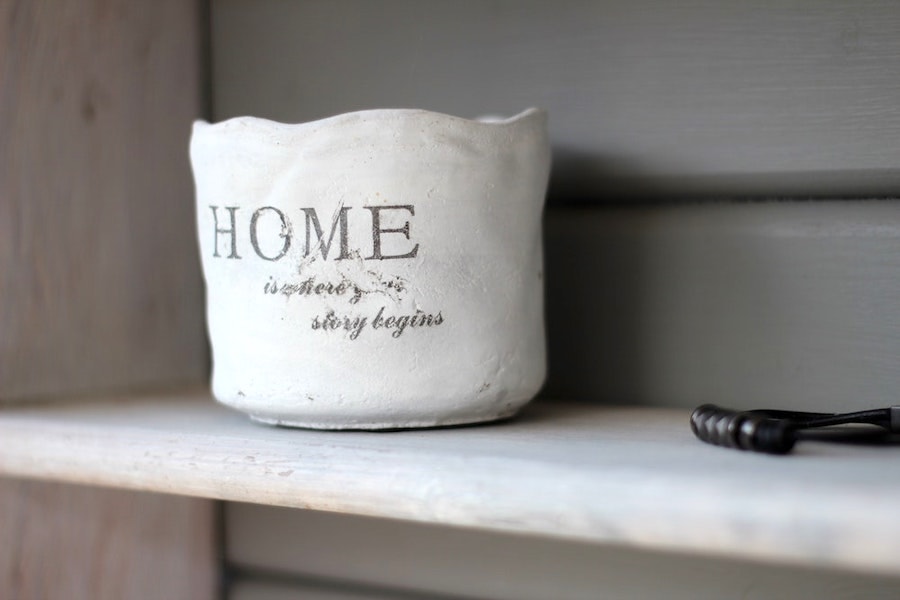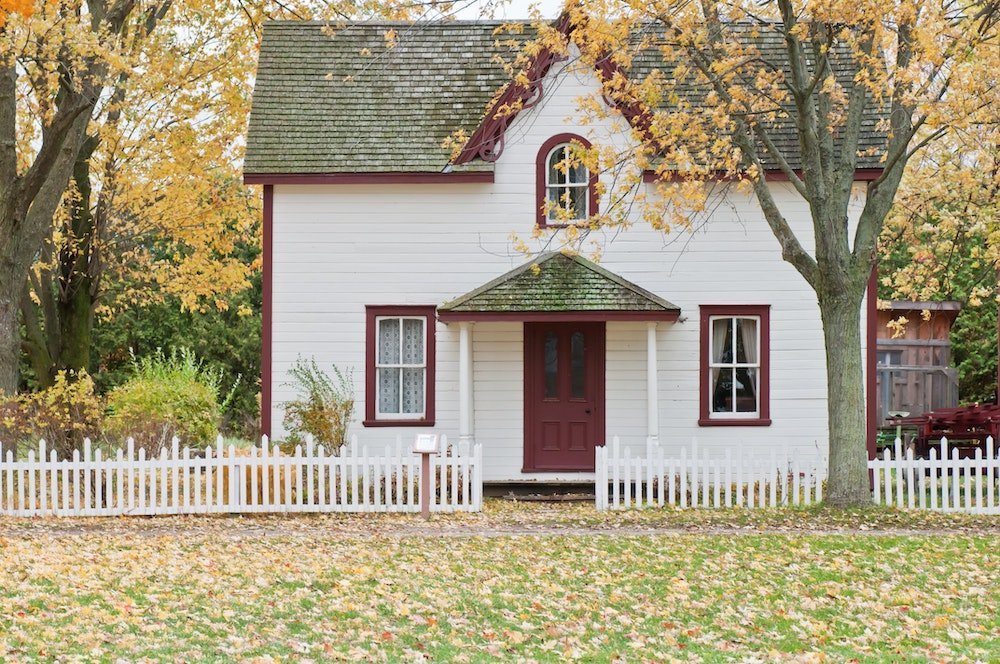
Mortgage rates are ticking upwards steadily this year which has caused the housing market to cool down slightly, and the buying frenzy has slowed down in many areas. This raises the question, is it better to rent right now or become a homeowner? For many, renting might feel like an obvious choice, especially if you work remote and you’re not sure where you want to live long-term.
Here’s the thing, homeownership is one of the fastest ways to build wealth and stability, even when a mortgage payment might be higher than a rental payment. What’s more, with a fixed-rate mortgage, your mortgage payment won’t increase or change for the life of the home loan. So even if the rental market seems cheaper right now, there’s no guarantee when the rental market will push costs higher. When you become a homeowner, you can rest easy knowing your mortgage payment is predictable and stable.
If you’re trying to decide whether to keep renting or become a homeowner right now, you’re not the only one. A lot of homebuyers have been asking us this question and wondering if it’s better to wait and see if the rates come back down. Whether you’re a long-term renter, or used to be a homeowner, deciding when to become a homeowner is a big decision.
If you’re thinking about becoming a homeowner right now, this article is written with you in mind.
RELATED: See the Top 5 home loans most popular for first-time homebuyers
Benefits of Becoming a Homeowner
1. Buying a home can help build financial stability with a steady mortgage.
With a 30-year fixed-rate mortgage, you can lock in your rate for the life of the loan and count on a fixed payment. No matter what happens in the economy, you can be certain that your mortgage payment will be steady and consistent. No surprises. No extra fees. No hidden increases.
If mortgage rates continue to increase, you can rest easy with a fixed mortgage payment for the life of your home loan. If mortgage rates go down, you’ll always have the opportunity to refinance your mortgage and lock in an even better rate.
Renting provides stability only for as long as your lease agreement, often 1-3 years. This means that unless you live in a rent-controlled area, rent can increase with little notice and you’ll be subject to market rates. Sometimes the landlord moves or sells the building, other times a new property management company revises the rental structure.
RELATED: How to FAST TRACK your application with a mortgage pre-approval
2. Buying a home creates the opportunity to build equity.
Home equity is the difference between your mortgage balance and the current market value of your home. For example, if you put 20% down on your home, you’ve already got 20% equity. Every time you make a mortgage payment, a portion goes to pay down your mortgage balance. This means the equity increases each month.
In many areas, home values increase even faster than inflation. This means your home value (and your equity) will increase simply by paying your monthly mortgage payment on time. As your equity builds, you’ll have opportunities to borrow against that equity and invest elsewhere or refinance your mortgage to secure a lower monthly payment.
In short, when you become a homeowner, you’re paying yourself every month instead of paying a landlord. As your mortgage balance goes down and your home value goes up, you’re building wealth through home equity.
On the other hand, renting offers no return on your monthly payment. When you pay rent, your landlord benefits from the property value and home equity.
Use this MORTGAGE CALCULATOR to find out how much you can afford right now
3. Becoming a homeowner has tax advantages.
When you buy a home, mortgage interest and property taxes are tax-deductible in most states across the country. This can bring a huge tax break on your income taxes, even while you’re building wealth through home equity. Homeowners also benefit from tax advantages on any profits when they sell their home in most circumstances. Check with your tax accountant to verify the tax laws in your state and confirm your savings.
Renting, on the other hand, offers no tax benefits or breaks on your income tax in most states. Often this translates to higher income taxes for renters compared to homeowners in the same income bracket.
Find a qualified mortgage expert in your local area
4. Becoming a homeowner gives you freedom to build or remodel.
When you become a homeowner, you’ll have complete freedom to update the kitchen, remodel the bathroom, build a deck in the backyard or even put in a swimming pool. As a homeowner, you can decide when and if you want to change your home or build an addition. You can also take out a home equity loan to finance a remodel which can be financially strategic and an inexpensive way to borrow money.
Renters often have limited options if they want to update their home, based on the landlord’s rules. Also, if you decide to update your property or do minor remodeling, as a renter, you usually have to pay the costs yourself even though you don’t own the property. When it’s time to move, all those upgrades will stay with the property.
5. Homeowners enjoy financial flexibility.
When you become a homeowner, you enjoy the benefits of financial stability. Your home is an asset and as it increases in value, you can leverage that value to build wealth. For example, you can refinance with cash-out and invest that money elsewhere. Or you could borrow against your equity and buy a second property as an investment.
As a renter, even if your rent is stable, inflation is affecting your bottom line. As the cost of living increases, your rent payment is going to your landlord instead of helping you build equity.
Benefits of Renting
1. Renting offers flexibility to move whenever your want.
If planting roots and establishing yourself sounds limiting or restricting, renting might be a good option. Most properties offer month-to-month leases as well as 1-3 year leases for a new tenant.
If you’re job hunting or want to try out different parts of the country before you settle down, renting is a good way to put down temporary roots and see what life in that city feels like. If you decide at any point to move closer to family or even change jobs, renting gives you the freedom to pack up and go.
2. Renting often has fewer maintenance costs.
Maintenance for most properties is the responsibility of the landlord. For example, if the water heater goes out, you can call and have them take care of it. Rentals are typically maintained through a property management company, an onsite property manager, or directly by the landlord.
3. Renters don’t pay property taxes or mortgage interest.
Your rent payment is typically the full monthly cost with no additional fees or taxes. (Utilities, water, and garbage are typically separate but may be included depending on your lease.)
When you rent, the property owner is responsible for paying the property taxes, mortgage interest, HOA fees and homeowner’s insurance. Some people carry renter’s insurance, but it is substantially less expensive than homeowner’s insurance.
Related: Check out the best custom loan options for 2022
Drawbacks of Renting in 2022
One of the difficult things about renting is the instability of the market. For example, you may sign a 1-2 year lease when you become a new tenant. But when that lease gets renewed, your rent can increase substantially.
If for some reason you can’t afford the increase, you’ll be forced to find a new place at current market rates. The property owner can also decide to sell the property or simply stop renting the property altogether.
Finally, as a renter, your monthly payment goes directly to your landlord instead of paying down your mortgage and building equity in your home. There are also few or no tax benefits for renters in most states.
Summary
Renting might provide the flexibility you need right now, while becoming a homeowner could bring stability and create a path toward financial freedom.
If you’re considering becoming a homeowner right now, it’s time to take action and lock in your rate. Rates are still affordable, and home loan terms are favorable for qualified buyers. Connect with a local mortgage advisor to discuss your goals. The right mortgage can help you build financial security and put you on the fast track toward building wealth through homeownership.
Taking Action
Connect with a mortgage advisor. There are several custom loan options, along with FHA loans, VA loans, conventional mortgages and jumbo loans with great mortgage rates right now. So whether you’re a first-time homebuyer or becoming a homeowner for the third time, the right mortgage can help you build financial freedom. We’d love to help.



